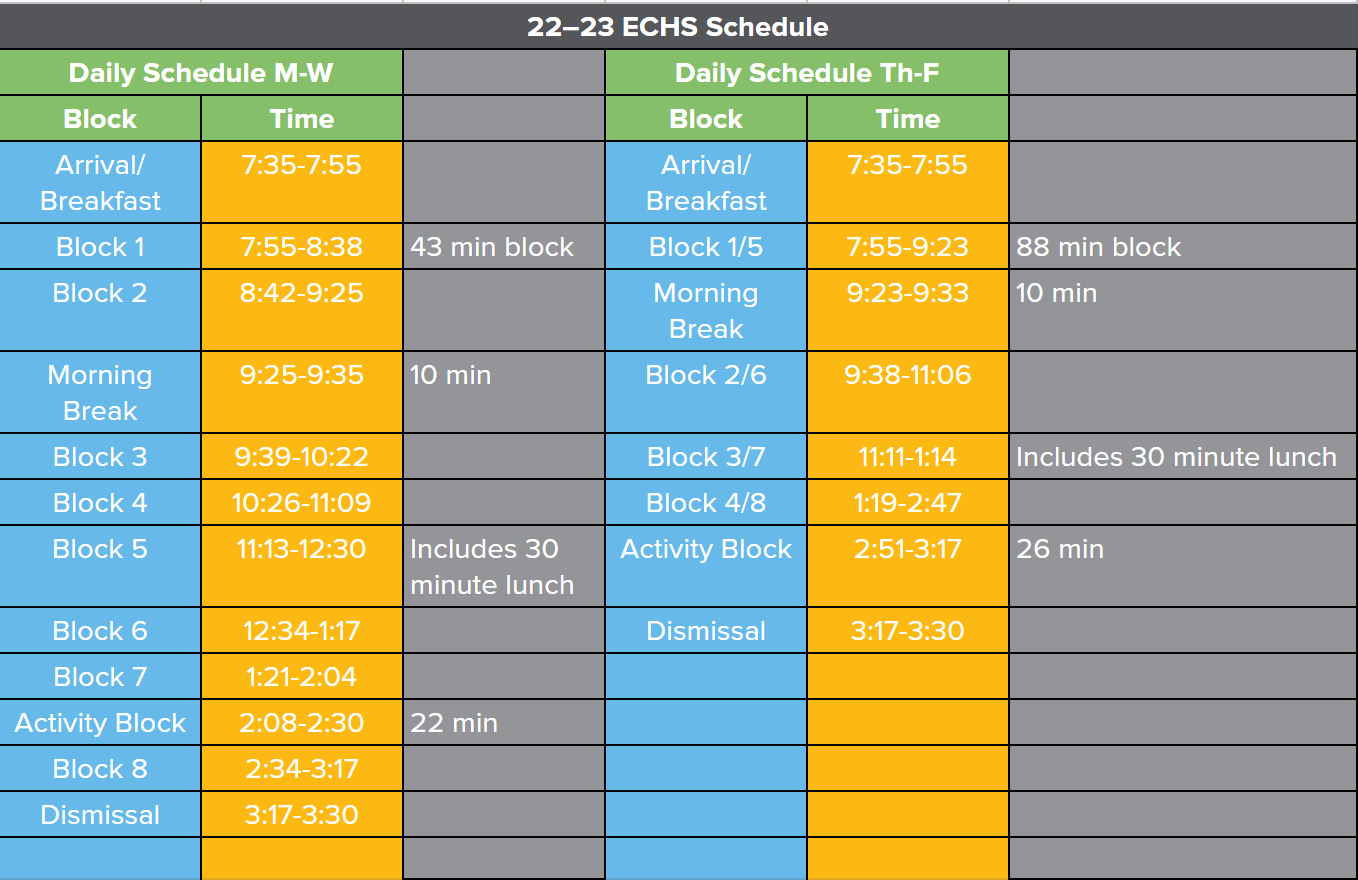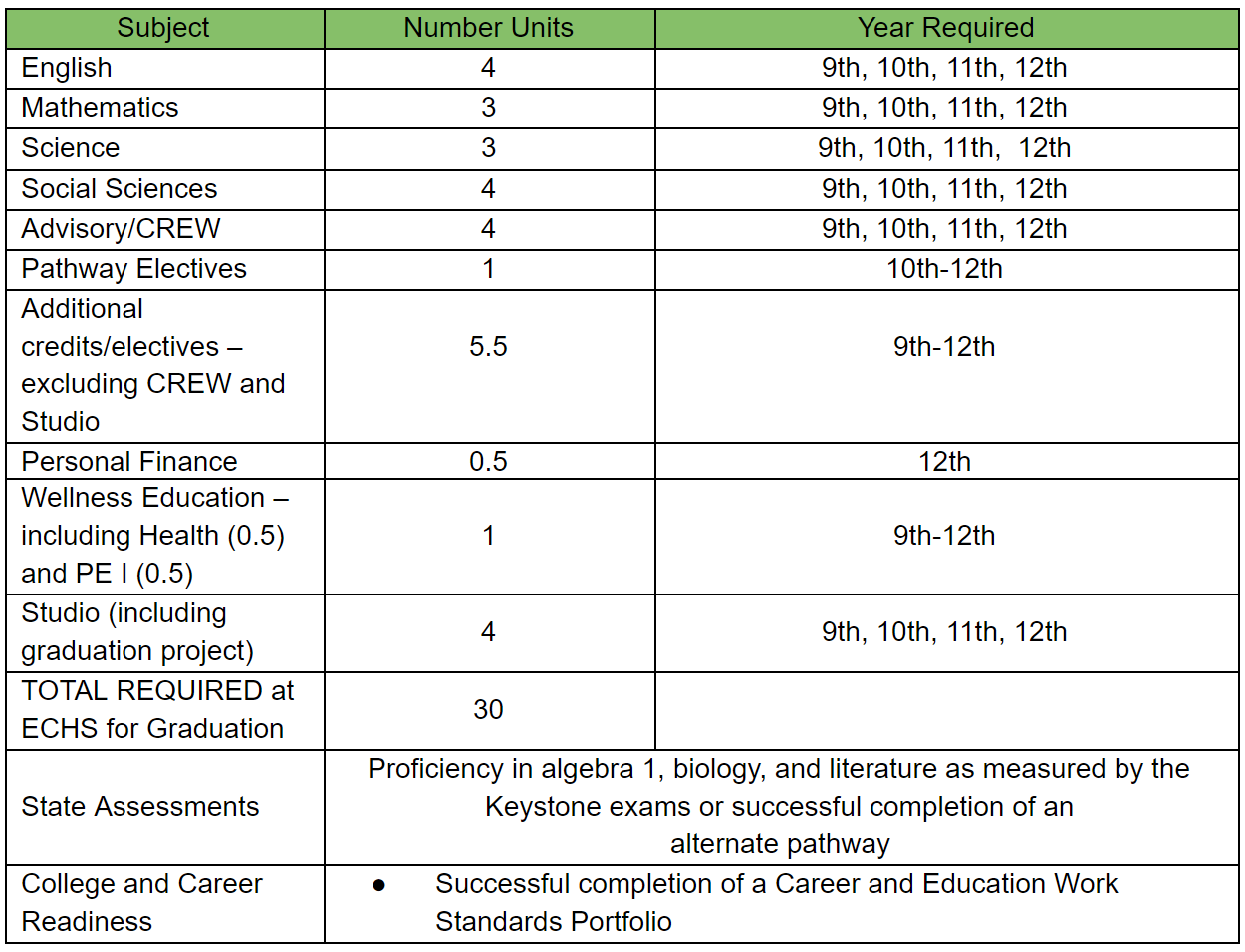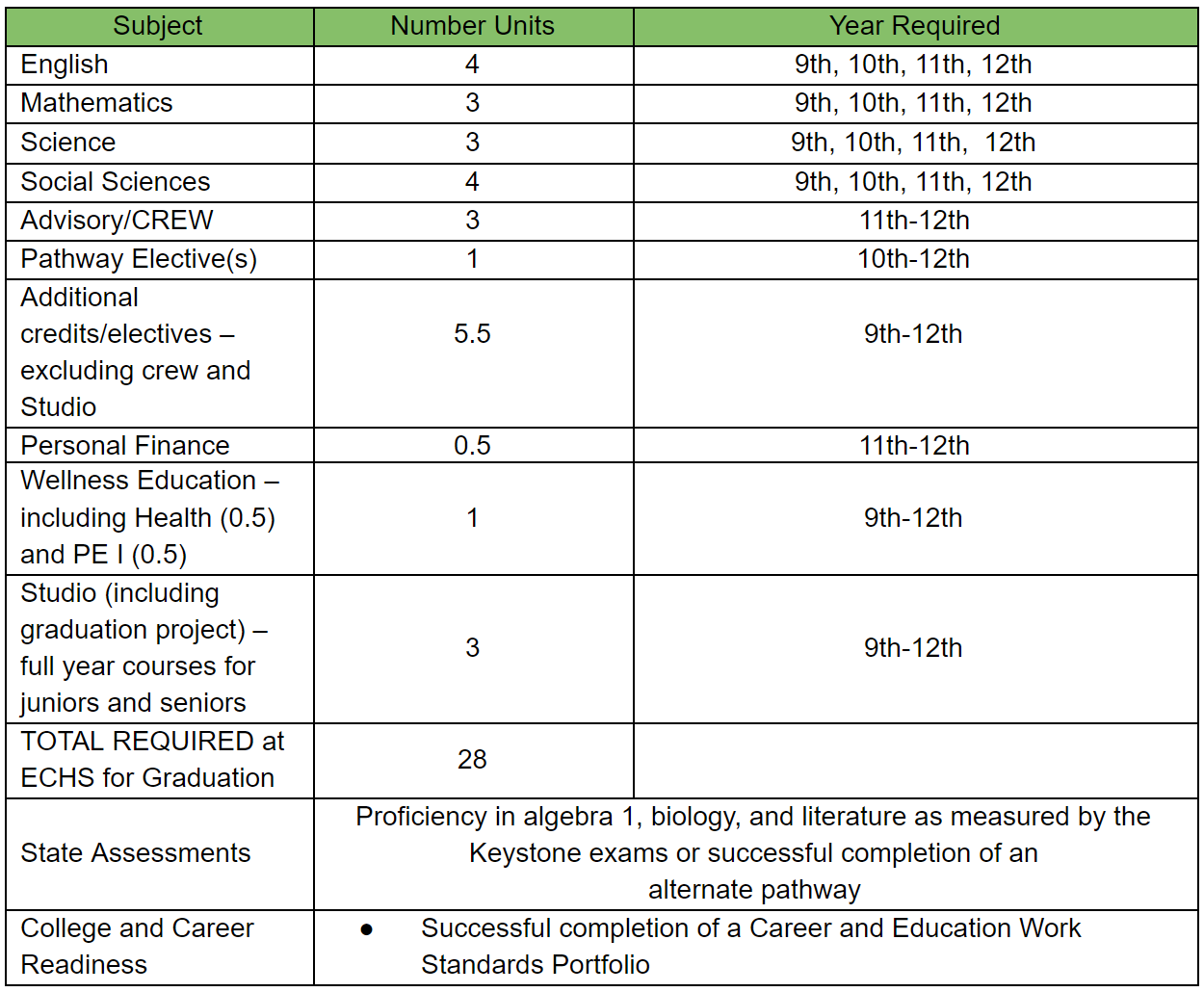-
Students will graduate ecologically literate as evidenced by standards, having successfully participated in a project that engages in community dialogue and decision-making by making the avenues to voice and activism transparent. Students will be academically proficient as supported by proficiency on state, national or other assessment measures. They will develop as social change agents as evidenced by their ability to create and maintain relationships that positively impact the communities in which they exist. Our students will transition successfully to and through college or a professional career to become change agents in their communities.
-
We aim to support the development of the whole person, grow complete individuals with the ability to systems think in ways that successfully approach navigating relationships, career endeavors, and/or personal journeys in the 21st Century that unite us in a common humanity worthy of our own children.
-
Catalyst: As a charter school, we are innovators in public education. We are a passionate and progressive group of educators who work to develop individuals into global thinkers with diverse perspectives
Character: We are dedicated to making the world a better place, socially and environmentally, for future generations. We engage students in character development through educational experiences that evaluate the impact of individual choices and that are born from collective discussion and the investigation of diverse perspectives.
Collaboration: We value collaboration with our community and recognize the power of systems thinking. We believe that respectful, transparent, and reflective dialogue among our constituents (students, families, faculty, neighbors, and regional partners) is necessary for elevating educational experiences for all learners.
Commitment: We are a dedicated community of passionate leaders who are committed to redefining ecological literacy. Our educational model endorses an interdisciplinary view of complex environmental systems
What Makes ECHS Different?
ECHS aligns content within a greater context. This translates to a different type of course descriptor or syllabus to describe how each piece fits together. It is through these adopted practices that we are redefining what “content” is covered, what “skills” are addressed, and how “culture and being” is infused. We are challenging the notion that a subject area drives the learning, and subsequently, we are designing a high school experience that evolves from a different framework.
ECHS will emphasize ecological literacy, thinking, and the elevation of culture in the learning process. As such, this program will fundamentally re-envision the traditional high school experience and uniquely address the needs of 21st-century students. Our program will be nestled in the following key areas:
-
The school cannot exist without community. Building on the power of “place-based education,” the ECHS program will foster rich and vibrant experiences and context learning opportunities in the community it actively exists. Challenging the notion of “community” and “community engagement,” students in ECHS will start curricular work in place-based problem solving with organizations, businesses, and individuals working alongside students. As engagement with the local community builds, students will scale to more global challenges. This area of innovation will require new types of collaborations, curricular evolution with educators and partners, and learning paths that engage all members of the community for student discovery. The ECHS approach to a “flipped community” will require learning to be seen as a “shared community asset, with many people creating, preserving, and protecting critical resources.” Students and educators will build visual literacy, collaboration, networking, and flexibility to navigate the learning ecosystem of the community.
-
The ECHS is taking a stand about the graduates that emerge from its program. Students will learn how to engage in community dialogue and decision-making by making the avenues to voice and activism transparent. As noted in the mission, the goal of ECHS is to create learning opportunities that unite us toward a common humanity.
-
Being able to negotiate the world of the future and managing complexity takes resilience, reflection, and understanding of one’s self –as a learner, as an agent of transformation, and as a global citizen. The ECHS will build in mechanisms, structures, and opportunities for students to discover their authentic selves, and then design conditions with students to build on their assets while understanding personal areas for growth. Challenging the notion of compartmentalizing learning and being, ECHS will facilitate experiences for students to discover the relationship between self and the world, and how this “marriage” is one that can foster resilience, understanding, and hope when faced with complexity.
-
Health and well-being will be a cornerstone of the ECHS experience, and for all members of the community. Building on the focus of socio-emotional wellness as a foundation for active learning, ECHS will place considerable focus on physical health and wellness. Partnering with experts in wellness and fitness advisors, ECHS community members will design different ways of achieving routines and schedules to promote health and well-being.
-
As conditions for innovation continue to increase, ECHS’s ability to add additional hallmarks of innovative practices and endeavors will continue to expand. ECHS will be an organization that actively creates conditions, structures, and capacity for faculty and students to evolve our practices and programming. Conditioning includes spaces that encourage collaboration/innovation, asset surveys to support best work, opportunities to experiment and fail, and continual attention to making “being” work visible to our community.
-
As we work to prepare our students to be active, engaged, and empathetic citizens of the global community, our program at ECHS will focus on “educating for sustainability” in terms of both content and pedagogy. Our students will focus on the United Nations’ 17 Sustainable Development Goals and the ways in which they manifest themselves in the natural world and in our social and economic fabric, and our pedagogy will push students to think critically, creatively, and collaboratively so that they can become effective problem solvers whose decisions will help make life on Earth more sustainable for everyone.
ECHS Programming
We aim to grow the complete individual through the development of connections, relationships, and experiences that unites us in a common humanity worthy of our own children. The ECHS experience focuses on the following:
Integrate. Consistent with our K-8 program, ECHS intentionally provides opportunities for content to be shared and experienced across disciplines. Additionally, ECHS creates project-based learning opportunities throughout the student experience.
Grow. Students develop independence through coaching, authentic relationships, and routines that support longevity, health, and wellness.
Connect. ECHS provides opportunities for collaboration and experiences in the real world, through partnerships, internships, dual enrollment, apprenticeships, and civic engagement.
Extend. Students build competencies and skills to organize, analyze, communicate, and express ideas, and to actively engage as a citizen of the world.
Focus. Students build independence through the identification of a pathway or “major” in sustainability to capstone the environmental literacy experience at ECS, and prepare for college, career, and community readiness.
Course Information
The academic program at ECHS includes a focus on core content (academic courses), electives (interests and skill development), and interdisciplinary pathways, and these components individually and collectively support the academic trajectory of our students – including specialization in a student-chosen pathway and a capstone Graduation Project.
All ECHS students must successfully complete two-semester electives that are approved as part of their chosen pathway. In the course descriptions that follow, elective courses that will count for this requirement for one or more of our four pathways will be identified with these corresponding notations:
S: STEM
A: Art, Music, & Design
H: Health & Wellness
C: Community Development (Business, Finance, Entrepreneurship)
Please note that final decisions regarding the actual offering of any particular course listed in this document will depend on enrollment, staffing levels, and budget constraints. Thus, not all courses listed below are guaranteed to run every school year nor are students guaranteed spots in any particular class.
-
The ECHS Sustainable Pathways will play a significant role in students’ ECS academic career. The intent of these pathways is not for students to declare their career path, but rather to offer students an opportunity to personalize and explore ideas of sustainability through topics they feel most connected with. These interdisciplinary pathways will invite students to approach their classes, work, and co-curricular experiences through a more concentrated lens. Regardless of their chosen pathways, students will approach these experiences with a shared focus on sustainability, including big ideas around global citizenship, equity and justice, systems thinking, and environmental engineering/human-centered design.
During the second semester of their sophomore year, students will select one of the four pathways to focus on for the remainder of their high school career. The variety and overlap of content, courses, and experiences within pathways will offer both depth and breadth of content, showing students firsthand how interconnected skills, disciplines, and dispositions are. Opportunities for breadth may include college and career exposure, job readiness skills, college-level enrollment, community partnerships, and extracurriculars.
Students will select from the following pathways:
Community Development (Business, Finance, & Entrepreneurship)
Science, Technology, Engineering & Math (STEM)
Students’ chosen area will be the basis for their capstone graduation project. In addition, each student is required to take two-semester electives from the approved list of six for each pathway.
Pathway Electives
One unique graduation requirement for ECHS involves the completion of a “pathway” that will provide a concentrated lens for a student to examine the world. Students will select from one of the following four pathways at the end of their sophomore year, and their chosen area will be the basis for their capstone graduation project. In addition, each student is required to take two semester electives from the approved list for each pathway.
ECHS will be revising and expanding these options in future years based on staff expertise and student interest, but for the 2023-2024 school year, please see the options below to assist with your course selection process. There is no guarantee that all of these classes will have sufficient enrollment each year so students may have to wait for another school year for their preferred class and/or take an alternate course in their chosen pathway. Please note that the notations in parentheses beside each elective indicate the department in which that course is listed.
Students may seek permission for another elective course to count towards their pathway by appealing to the Academic Affairs Committee.
-
Mathematics follows a progression of course content from Algebra 1 through Calculus. Students engage with Core Content Standards and Mathematical Practice Standards in a coherent, useful and logical way to enable them to learn how to make sense of mathematical problems. Students will have the opportunity to progress through to a college level math course (Calculus and/or Statistics) taken in 12th grade. Students must earn 3 credits of math coursework by graduation. Each year-long course is the equivalent of 1 credit. Note: Initial 9th grade course selection will be based on teacher recommendation. When Keystone Exam results are shared, changes will be made if necessary.
Math Course Progression
At the end of their 8th grade year at Environmental Charter Middle School, students are eligible to take the Algebra I Keystone Exam which is one of Pennsylvania’s three standardized assessments administered at the end of academic courses in high school. In order to graduate, students must pass the Keystone Exam or fulfill the requirements of one of the alternate pathways outlined earlier in this document. In addition, ECHS will use a student’s Keystone Exam results in order to determine math placement. View the Math Course Progression chart here.
-
In support of the ECS commitment to “grow citizens” and our corollary focus on interdisciplinary learning and critical thinking, our English and Social Studies teachers and courses are linked as co-equal parts of a broader Humanities Department. All students in grades 9-12 are required to take a two-course humanities sequence each year – one English class and one Social Studies class. The teachers of these courses will be collaborating and planning meaningful and engaging ways for content alignment, thematic understanding, and skill development and reinforcement, and while these classes will not be co-taught on a daily basis, the students will engage in numerous activities and assignments that synthesize their learning across both disciplines.
The literacy trajectory from 9th grade through the senior year is intended to build students’ skill set in critical reading, effective written and oral communication, and astute analysis and evaluation of information. Students will write frequently for different purposes, using a process approach that includes revision and editing for grammatical conventions, and students will continue to develop their vocabulary along with speaking and listening abilities. Many of the skills developed in our English classes will be key foundations for students as they complete their required projects for graduation, and our emphasis on content and skills will prepare students to be engaged and empathetic global citizens and to find success in post-graduate pursuits – both college and career.
Our core courses in social studies focus not only on historical narrative but also on patterns and themes as well as geography, government, economics, science & technology, the arts, and literature. In essence, we will seek to help our students grow in their understanding of what factors have shaped the human experience – and how lessons from the past have caused and can inform our contemporary world. Our goal is for our graduates to have the capability to make thoughtful, reasoned, informed decisions as citizens of a diverse, democratic society in an interdependent world. We will examine content through the lens of sustainability and work to foster strong critical thinking skills that will empower our graduates to become engaged citizens who are catalysts for change.
View all Humanities offerings.
-
Science content and the application of science across disciplines is a hallmark of the ECS experience. The science program at ECS uses the Next Generation Science Standards (NGSS) in conjunction with the PA Science Standards to engage in the three dimensions of the NGSS for successful science instruction: content, practices, and crosscutting concepts. Content drives the experience whether it is life science, earth science, physical science, engineering, or a combination of several of these topics. Students use scientific practices, such as asking questions and carrying out investigations, to actively engage in the content. Students act like scientists by taking risks, making mistakes, problem-solving through struggles, and persevering to create evidence-based arguments and solutions. The NGSS approach to science instruction produces inquisitive, critical, and communicative consumers of scientific information by providing authentic experiences that focus on deeper understanding of content as well as application of content. The program continually strives towards teaching the “how” and “why” rather than simply the “what” so students can walk away with the skills they will need to make critical choices and decisions in life.
Each year, students should be able to demonstrate greater capacity for connecting knowledge across, and between, the physical sciences, life sciences, earth and space sciences, and engineering design. During grades 9 -12, students begin to form deeper connections between concepts and skills learned in grades 6 -8, such as applying statistics to scientific questions, evaluating limitations of models, and creating algorithms to solve problems.
-
-
ECHS believes in the importance of holistic wellness – including both health and physical education – and through both required and elective courses, our students will learn important content, skills, and perspectives to promote a healthy lifestyle as they grow into adulthood. Students must complete two semester classes (1 total credit) in this department in order to graduate. View all Health and PE Courses.
-
The World Language program at ECHS teaches students to communicate in a language other than English and to understand the perspectives of different cultures. Our sequential courses are designed to help students build language proficiency and fluency in reading, writing, and listening, and speaking. All students will begin with the first level of their chosen language, unless they arrange to take a placement exam with the appropriate teacher. View all World Language offerings.
Mandarin
Mandarin courses follow the World-Readiness Standards for Learning Languages with standards organized around the “5 C’s” of learning languages; communication, cultures, connections, comparisons and communities. Students progress through coursework each year beginning with the required Mandarin I course which provides students with the opportunity to become proficient at the novice level in all skill areas: speaking, listening, reading, and writing. Students acquire skills from reinforcement through practice, conversation, games and authentic tasks. For a student to progress to the next Mandarin level class, a C or above is required in the previous Mandarin course.Spanish
Spanish courses follow the World-Readiness Standards for Learning Languages with standards organized around the “5 C’s” of learning languages; communication, cultures, connections, comparisons and communities. Students progress through coursework each year, beginning with the required Spanish I course which provides students with the opportunity to become proficient at the novice level in all skill areas: speaking, listening, reading, and writing. Students acquire skills from reinforcement through practice, conversation, games and authentic tasks. For a student to progress to the next Spanish level class, a C or above is required in the previous Spanish course. -
The Visual and Performing Arts program at ECHS seeks to enrich students’ lives and to provide them with an important vehicle to communicate and to express human emotion and ideas in a meaningful way beyond the limits of language. In addition, we believe that experiences in the arts help to prepare students to be successful, engaged, and empathetic citizens who think in innovative and creative ways. View all Visual and Performing Arts programs.
-
Internship Grade 12 0.5 Credit
Environmental Charter High School is committed to partnering with local organizations and companies to help close the education to employment gap, and develop career pathways through the senior year internship program. The program pairs students in the high school workforce track with Pittsburgh employers to work on-site. This work experience reinforces the future-ready skills introduced in the classroom, including communication, complex thinking, and decision making. Sponsoring companies, in turn, are developing Pittsburgh’s skilled workforce, while creating a diverse pool of future applicants for themselves. Students interested in this program should register for it in the spring, but they will still have to complete a registration process and other paperwork that ECHS will provide.
Dual Enrollment Grades 11-12 1 Credit
ECHS is also working to provide opportunities for students to take classes with local institutions of higher education through dual enrollment programs in which courses would count for both high school and college credit. We will definitely be offering two courses in conjunction with Chatham University – a statistics class in the fall and an introductory English composition class in the spring. Both of these courses will meet after normal school hours so they will not impact what classes students are able to take at ECHS. Our counselors and administration will provide the relevant information for interested students at the appropriate time.
In addition to exploring other possibilities with Chatham, we are also seeking to partner with the Neighborhood Learning Alliance and CCAC to provide other dual credit options, and we will share that information with students and parents once we confirm any such arrangements. ECS is committed to pursuing these innovative partnerships on an annual basis as we strive to find meaningful ways for our high school students to challenge themselves and to be as prepared as possible for life after high school – whatever that path may be.
-
The ECS Graduation Project is a requirement for graduation. This culminating experience will give students an opportunity to bring their learning to life. With support from their advisor, students will create/design a project which will allow them to authentically engage with their chosen ECS Pathway, connect to the pillars of sustainability, and showcase how they have grown into an eco-literate citizen.
Students will need to apply the following competencies in order to be successful:
Critical and Creative Questioning
Research and Investigation
Organization and Managing Timelines
Incorporating Feedback
Communicating for Various Audiences
Essential Project Components:
Project proposal and approval
Documentation and deliverables to show the learning process
Community Engagement
Final Presentation and Reflection
-
ECHS students have the opportunity to participate in an “Embedded Honors” model starting in 10th grade in which teachers provide highly differentiated and challenging assignments for students who select this option. In 11th and 12th grades, students have the option to take separate advanced coursework – including AP classes and distinct “Honors” courses.
View Course Offerings by Grade Level
Career Readiness Indicators
The Career Education and Work Standards, Chapter 4 of Title 22, are part of the State Board of Education’s regulations of required education for all students in Pennsylvania. The Career Education and Work Standards address four areas of knowledge:
- Career Awareness and Preparation (13.1)
- Career Acquisition (Getting a Job) (13.2)
- Career Retention and Advancement (13.3)
- Entrepreneurship (13.4)
Through a comprehensive approach, Career Education and Work Standards complement all disciplines and other academic standards. If Pennsylvania’s students are to succeed in the workplace, there are certain skills that they need to obtain prior to graduation from high school. These skills have been identified in the Career Education and Work Standards.
Naviance Portfolio The Naviance Program is a comprehensive toolset that helps schools assess and develop essential competencies students need to be successful after high school. In alignment with our goal of ensuring career and college readiness for every student, Environmental Charter High School provides our students with experiences in Career Awareness and Preparation (13.1), Career Acquisition (13.2), Career Retention and Advancement (13.3), and Entrepreneurship (13.4). Throughout a student’s years at ECHS, they will participate in multiple learning experiences designed to meet one or more of the Career Education & Work Standards. The culmination of these experiences will result in a comprehensive Career Education & Work Standards Portfolio that each student will finalize through their Studio courses by the end of their junior year.
By the end of 11th grade, students must:
- Have a minimum of eight (8) pieces of evidence (at least two (2) per grade levels (9-11)
- Address each career strand (13.1, 13.2, 13.3, 13.4) with at least one (1) piece of evidence
- Include at least two (2) pieces of evidence that demonstrate implementation of the student’s individualized career plan.
School sponsored events and classroom lessons, organized and facilitated by teachers and/or school counselors, are designed as a part of our comprehensive career education and work curriculum to aid students in developing these evidence pieces and building their unique portfolios.
State Assessments
In accordance with PA Act 158, Environmental Charter High School has aligned graduation pathways related to state assessments and proficiency in Algebra 1, Biology, and Literature standards. Aligned with Pennsylvania Department of Education (PDE) requirements and the Federal Every Student Succeeds Act (ESSA), every student will attempt the Algebra 1, Biology, and Literature Keystone Exams upon completion of the aligned course for each exam. In the event a student does not earn a minimum proficient score on the first attempt, ECHS will offer supplemental instruction to prepare the student to retake the exam during a subsequent testing window. Please note that in order to earn a high school diploma, students who do not pass the three Keystone exams noted above must successfully complete one of the appropriate pathways outlined below for each subject in which the exam score does not meet the required level of proficiency.
- Keystone Proficiency Pathway: Scoring proficient or advanced on each Keystone Exam- Algebra I, Literature, and Biology
- Keystone Composite Pathway: Earning a satisfactory composite score of 4452 on the Algebra I, Literature, and Biology Keystone Exams (achieving at least a proficient score on at least one of the three exams and no less than a basic score on the remaining two).
Alternate Assessment Pathway: Successful completion of aligned coursework with a minimum grade of a C for each academic content area associated with each Keystone Exam on which the student did not achieve proficiency and one of the following:
- Attainment of an established score on an approved alternate assessment: SAT (1010), PSAT/NMSQT (970), ACT (21), ASVAB (31)
- Attainment of Gold Level or better on ACT WorkKeys
- A score of 3 or higher on two AP exams
- Successful completion of concurrent enrollment course
- Successful completion of a pre-apprenticeship program
- Acceptance into accredited, non-profit Institution of Higher Education (IHE) 4 year program for college-level coursework
Evidence-Based Pathway: Minimum grade of a C for the completion of aligned coursework for academic content areas associated with each Keystone Exam on which the student did not achieve proficiency and demonstration of three pieces of evidence that reflect readiness for meaningful postsecondary engagement consistent with the student’s goals and career plan, including: One of the following:
- Attainment of 630 or better on any SAT subject test
- Attainment of Silver Level or better on ACT WorkKeys
- A score of 3 or higher on AP exam
- Successful completion of concurrent enrollment course
- Industry-recognized credentialization
- Acceptance into accredited, non-profit Institution of Higher Education (IHE) 4 year program for college-level coursework Two of the following:
- Satisfactory completion of a graduation project
- Attainment of proficient or advanced on a Keystone Exam
- Letter guaranteeing full-time employment or military enlistment
- Completion of an internship, externship or cooperative education program
- Compliance with NCAA Division II academic requirements
Pittsburgh Promise
Students who meet the following criteria are eligible for Pittsburgh Promise:
- Must attend PPS or one of its charters since at least the beginning of 9th grade
- Must be a resident of the City of Pittsburgh continuously since at least the beginning 9th grade
- Must graduate with a minimum GPA of 2.50 and an attendance record of 90% or above
Sample Schedule
Below is a sample schedule to show a typical day in the life of an ECHS student during the 22–23 School Year.

Graduation Requirements
To graduate and receive a diploma in the state of Pennsylvania, a student must obtain 21 specific credit requirements. Each high school in the Commonwealth adds requirements based on programmatic needs, the school’s mission, and preparation towards college and career readiness. Thus, ECHS has adopted the following requirements for graduation for the class of 2026.

For current ECHS students in the classes of 2024 and 2025, the following graduation requirements apply:

Act 158–Pathways to Graduation
Statewide High School Graduation Requirement Act 158 of 2018 (Act 158), signed into law by Governor Tom Wolf on October 24, 2018, provides alternatives to Pennsylvania's statewide requirement of attaining proficiency on the three end-of-course Keystone Exams (Algebra I, Literature, and Biology) for a student to achieve statewide graduation requirements.
Effective with the graduating class of 2023, students have the option to demonstrate postsecondary preparedness through one of four additional pathways that more fully illustrate college, career, and community readiness. Keystone Exams will continue as the statewide assessment Pennsylvania uses to comply with accountability requirements set forth in the federal Every Student Succeeds Act (ESSA). Although students will no longer be required to achieve proficiency on the Keystone Exams to meet the statewide graduation requirement, students must take the Keystone Exams for purposes of federal accountability. Failure to do so will affect a Local Education Agency (LEA) and school's participation rate.
The Act 158 Toolkit was designed to provide guidance as a result of the enactments of Act 158 and Act 6 of 2017 (Act 6), which established alternative pathways to meeting statewide graduation requirements for students who are Career and Technical Education (CTE) concentrators.
Our School
ECHS will temporarily be housed at St. Raphael’s school in the Morningside neighborhood until the completion of its permanent location at 6545 Hamilton Ave. The St. Raphael school is a stone’s throw from the Middle School location and features large academic rooms, a gym, and plenty of green space for students to get outside. A park is located just on the edge of the campus, and students can enjoy outdoor eating spaces while being in close proximity to several hiking areas.
-
ECHS is enrolled in the Southwestern Pennsylvania Athletic Association (SWPAA) as well as the Western Pennsylvania Interscholastic Athletic League (WPIAL). ECHS offers a variety of athletic programs, intermural sports, and clubs.
All students will be provided a Gym Membership to Kingsley’s Association.
Students can participate in sports/activities at your home school
-
ECHS students can join a variety of clubs that meet after school hours. View the available after-school programs.
-
All 9th Grade students are eligible for athletics at the beginning of the school year.
10th - 12th Grade students are eligible for athletics in the fall if they have passed at least six courses during the previous school year.
Eligibility for athletics for the latter half of the year is determined by first semester grades as students must be passing at least six courses at this juncture to be eligible.
Please note that students who are eligible to play a winter sport may lose their eligibility based on semester grades.
-
Students interested in participating in college athletic programs regulated by the National Collegiate Athletic Association (NCAA) must be certified through their Initial-Eligibility Clearinghouse by demonstrating a certain level of academic achievement in high school in order to be eligible to participate in college athletics. Students can obtain more information by visiting the NCAA Clearinghouse Website: www.eligibilitycenter.org/
Prospective athletes and their parents/guardians should work closely with their coaches, the school counselors, and the ECHS administration on this process, and the initial application process needs to be completed during the summer before the senior year.
-
The current faculty-to-student ratio is 1:6. Please check back soon for more information as additional staff is hired for the 22–23 school year. Learn more and meet the staff!
-
7:45 a.m. - Earliest students are permitted to enter the building.
7:49 a.m. - One minute "warning" bell
8 a.m. - School start time
3:22 p.m. - Dismissal
Address:
1154 Chislett Street
Pittsburgh, PA 15206
Phone: 412-247-7970 x4400
Fax: 412-626-6245






Track and Field | Important Dates | Congratulations